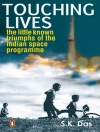To adapt to global competitive pressures, manufacturers must develop methods and enabling technologies towards a personalized, customer oriented and sustainable manufacturing. Mass Customization and Sustainability defines the two concepts of mass customization and sustainability and introduces a framework to establish a link between the two concepts to answer the questions: Are these two aspects empowering one another? Or are they hindering one another?
These questions investigate mass customization as one of the main driving forces to achieve effective sustainability. A methodology to assess the contribution of mass customization to sustainability is developed, providing an assessment model composed by a set of indicators covering the three aspects of sustainability: social, economical and environmental. This is supported and further explained using ideas and new concepts compiled from recent European research.
Researchers, scientists, managers and industry professionals alike can follow a set of practical examples and industrial cases, enabling them to easily transfer Mass Customization and Sustainability theoretical concepts into actions to be enforced into their everyday business for gaining competitiveness. Mass Customization and Sustainability also introduces useful concepts for government officials responsible for establishing sustainable policies and regulations, offering methods to compare the results of implementation of such policies.
Table des matières
1.Introduction.- 2.Mass Customization Theory and Implementation Framework.- 3.Sustainability Assessment Model.- 4.Assessment of sustainable MC production in a Selected Test Case.- 5.Ideas and Trends from Research Activities.- 6.Hic Sunt Dracones: Here Be Dragons.
A propos de l’auteur
Prof. Dr.Ing Claudio R. Boër He started his professional career in industry as He held the position of Director ICIMSI (Institute CIM for Sustainable Innovation) in SUPSI (2006-2012) and His research activities include Project Leader and then Research Director at ITIA-CNR (from 1988 to 2006), Project Leader of European Integrated Project EUROSho E (Mass Customization of Footwear) and S-MC-S (Sustainable Mass Customization and Mass Customization for Sustainability). He was also Expert CTI – Swiss Federal Agency for Technology and Innovation (from 1993 to 2007). He is Fellow of C.I.R.P. and has published three books and over 230 papers in the field of manufacturing, applied computer science to manufacturing and production management, plastic deformation simulation, applied robotic, Virtual Manufacturing Environment, Extended Enterprise, Mass Customization (in particular footwear).
Paolo Pedrazzoli is Professor in Modeling and Simulation at SUPSI (University of Applied Science of Southern Switzerland).
At SUPSI, he is head of the BSc degree course in Industrial Engineering and he co-directs the SPS-Lab (Sustainable Production System Laboratory).He worked, from 1999 to 2002, for the Institute of Industrial Technologies and Automation, part of the National Research Council of Italy (CNR), as a researcher in the field of Assembly Systems, 3D simulation and CAx. In 2000 he played a mayor role in the constitution of the Simulation and Engineering Applications Group, within CNR, led until 2002. From the beginning of 2002, he works for TTS s.r.l., a consultancy company active in the field of industrial simulation, as technical director. Within TTS, he is also responsible for RTD projects management. Presently, he combines his work at SUPSI with the role of partner and technical director at T.T.S.
Andrea Bettoni is a researcher of the Department of Technology and Innovation of SUPSI since 2010. He is involved in many national and European projects under the FP7 programme where he holds scientific coordination roles. He obtains his Master of Science in Mechanical Engineering in 2007 at the Politecnico di Milano with a thesis on augmented reality applied to industry. He starts thereafter his career as researcher at the Institute of Industrial Technologies and Automation, National Research Council of Italy, where he is involved in the field of 3D simulation environments. Today his main interests concern the application of innovative industrial paradigms like sustainability and mass customization.
Marzio Sorlini is Lecturer and Researcher for the Department of Innovation Technologies of SUPSI, the University of Applied Science of Southern Switzerland, where he started working in 2009 and where he teaches in Lean Manufacturing and Business Economics modules of the B.Sc. in Industrial Engineering, and in the Strategy, Innovation and Project Management module of the M.Sc.Eng.. As a researcher, he is project promoter and coordinator of several national and international research initiatives in the field of innovation management in manufacturing industries, especially focussing on product personalization and manufacturing mass customization topics. Since 2006 he has been partner of an Italian consulting company (TTS s.r.l.), where he manages publicly- and privately- funded research and innovation initiatives involving international partnerships. He graduated in Management Engineering at the Politecnico di Milano (2002) and from 2003 to 2005 he worked as a researcher at the Institute of Industrial Technologies and Automation of the National Research Council of Italy (CNR).












